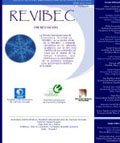Manejo de vicuña (Vicugna vicugna) para esquila desde la construcción colectiva: Estudio de caso en la Cuenca de Pozuelos, Jujuy, Argentina
Article Sidebar

Main Article Content
Solange Vargas
Universidad Pierre-Mendès-France
Jean Lapèze
PACTE, Grenoble, Francia
Jorge Mamani
Consejo de Participación Indígena. Pueblo Kolla Región Puna, Jujuy, Argentina
The economic activities of the Kollas communities of Rinconada and Lagunillas de Pozuelos (Basin of Pozuelos, Jujuy, Argentina) are essentially based on cattle rising. In the seeking for a rural development alternative, they have decided to develop a project of community based shearing of vicuñas (Vicugna vicugna). The aim of this work was to assess the potential of this territory and these communities to develop shearing as an alternative strategy for economic development. This was achieved through a Participatory Action Research, with interviews of the main actors, workshops and SWOT analysis. That process makes possible a proposal of some steps and actions lines which could help turning this kind of shearing into a sociological, environmental and economic activity of long-term viability. We may conclude that community shearing of vicuñas is a potentially viable economic activity for them, but different obstacles remains unresolved in order to make this project possible, such as a progress in the provincial legislation, needs for the communities to acquire specifics skills, and the establishment of a marketing chain which can provide a better and more equitable distribution of the benefits.
Paraules clau
Esquila comunitaria, Vicugna vicugna, desarrollo local, comunidades indígenas, Integración de la conservación y desarrollo
Article Details
Com citar
Vargas, Solange et al. “Manejo de vicuña (Vicugna vicugna) para esquila desde la construcción colectiva: Estudio de caso en la Cuenca de Pozuelos, Jujuy, Argentina”. Revibec: revista iberoamericana de economía ecológica, vol.VOL 25, pp. 55-68, https://raco.cat/index.php/Revibec/article/view/310590.